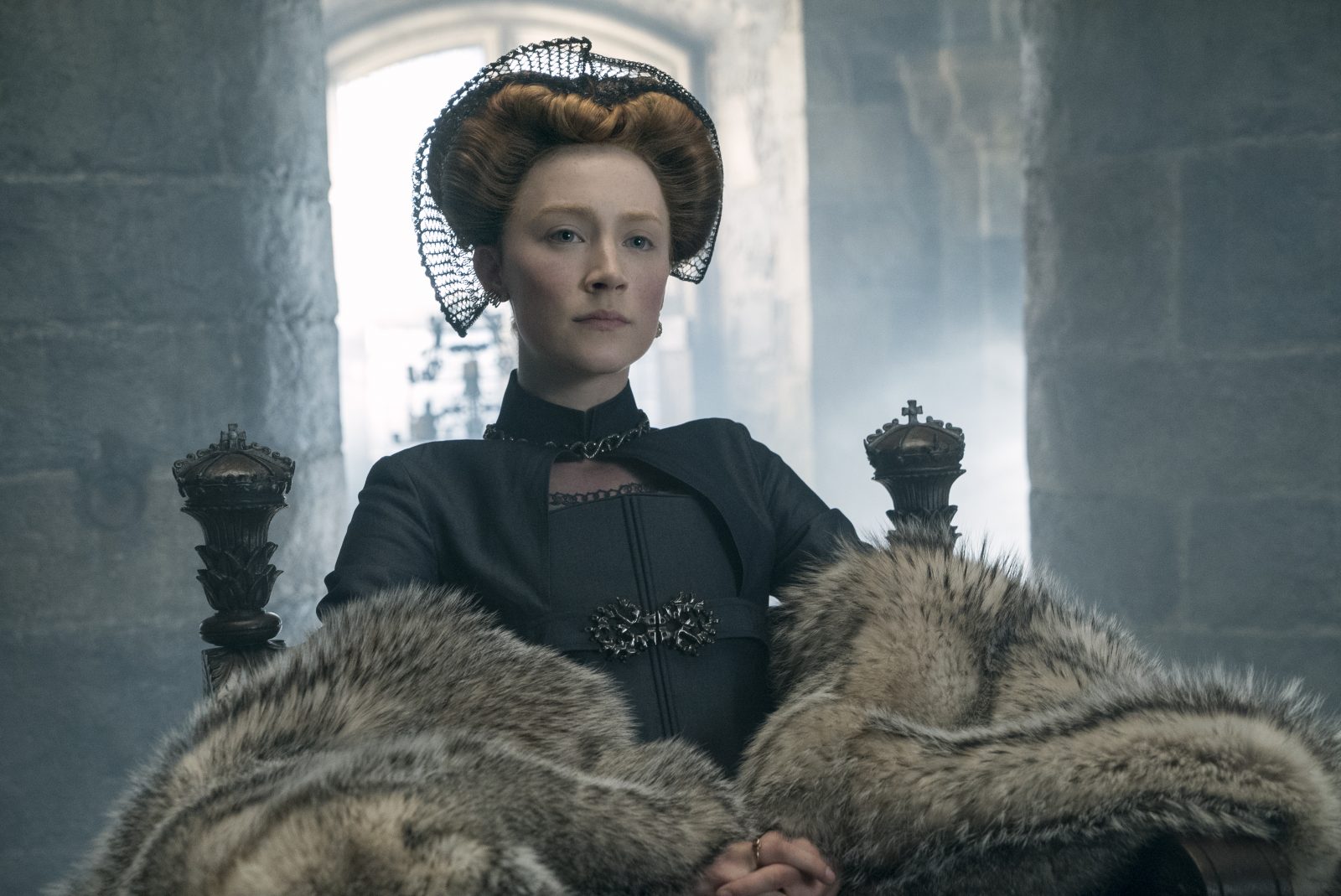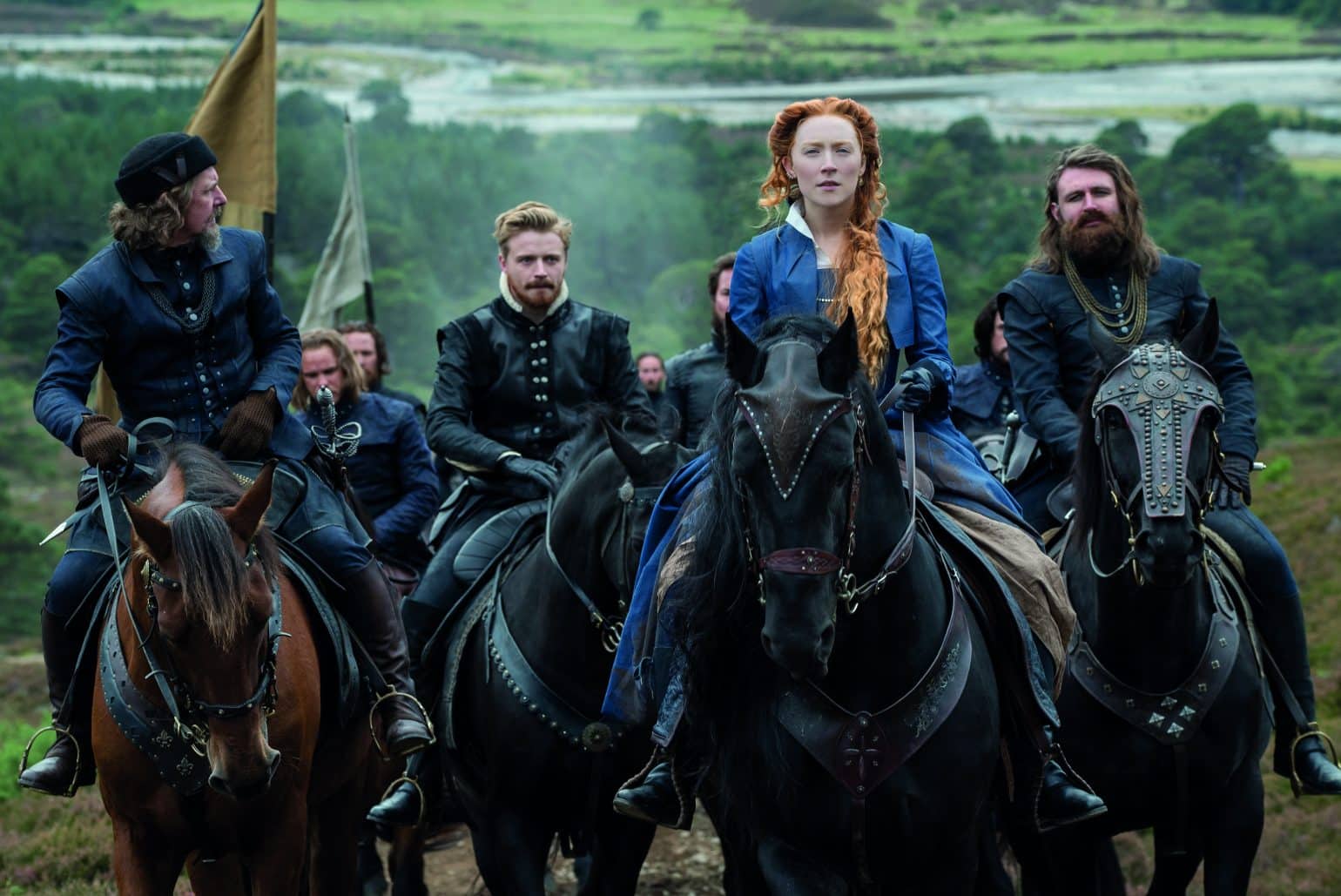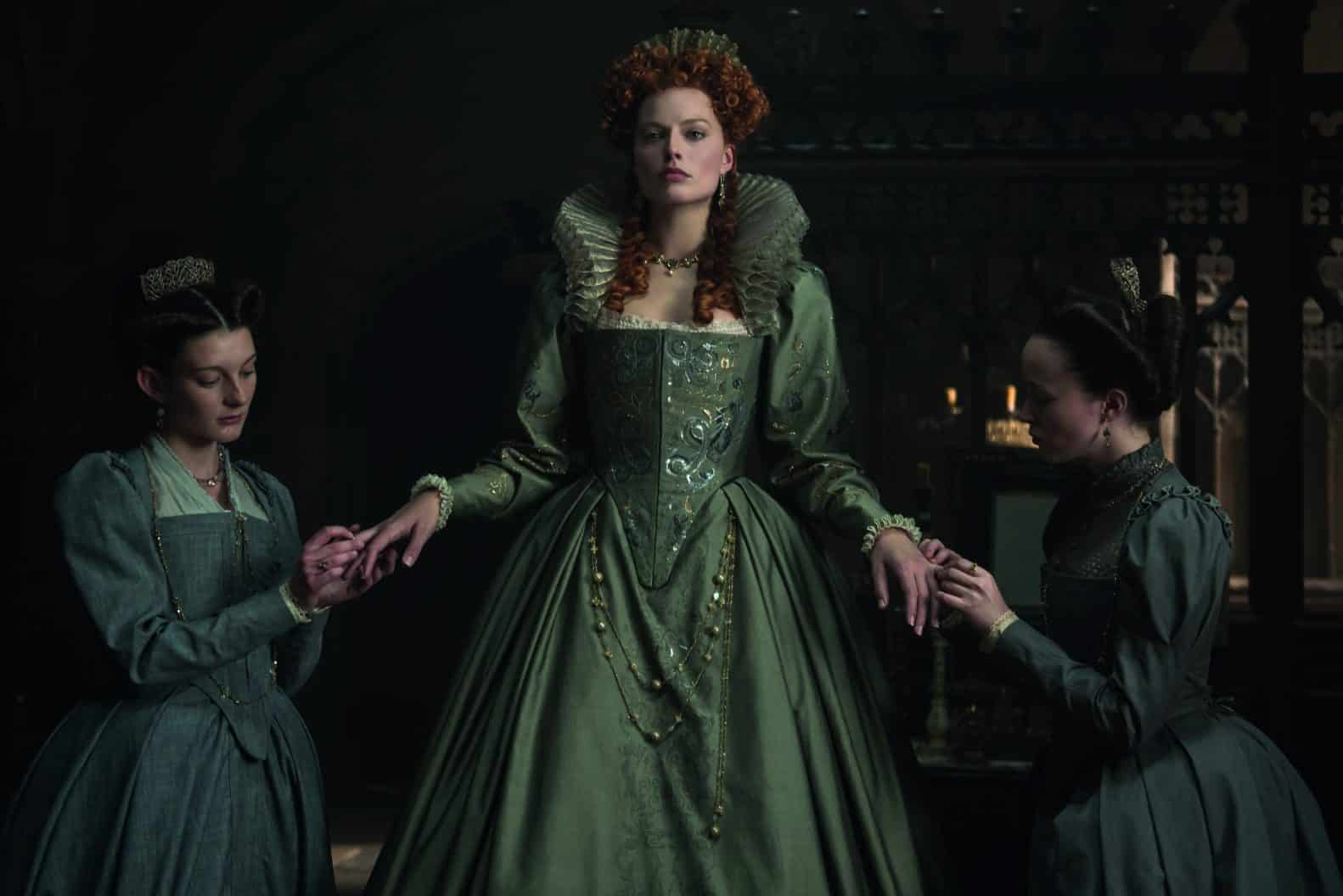
Dir: Josie Rourke | Wri: Beau Willimon | Cast: Saoirse Ronan, Margot Robbie, Jack Lowden, Joe Alwyn, Angela Bain, Thon Petty, Adrian Lester, Adrian Derrick-Palmer, Ian Hart, Simon Russell Beale, David Tennant, Brendan Coyle | Drama | US/UK/ 134′
MARY QUEEN OF SCOTS is the second film this year that deals with the complicated lives of women in power. In Yorgos Lanthimos’s sassy black comedy Queen Anne falls under the spell of her two female courtiers but manages to prevail despite her reduced mental and physical circumstances. Josie Rourke’s toys convincingly with the truth in her spectacular but sensitive drama that explores the thorny relationship between two 16th century Queens at opposite ends of the British Islands – Mary in Scotland and Elizabeth in Southern England. In some ways these show how women at the top can be lionised and then swiftly victimised: all three female monarchs are highly intelligent and intuitive but they are also totally alone, and crucially vulnerable because of their gender. And the salient fact that emerges in both these films is that regal women – or any female leaders for that matter – are betrayed by their own kind – and not just their menfolk – in their fight to prevail (‘wise men wasted on the whims of women’).

As director of the Donmar Warehouse Lisa Rourke’s approach is theatrical and exquisitely visual in her screen debut. This is a lavishly mounted and magnificent saga that straddles the majestic Scottish landscape and also the lush intimacy of the interior scenes. The 16th century is seen from a uniquely feminine focus. And Rourke appreciates the sensibilities in question that only a woman could appreciate: the great sadness at the heart of Elizabeth I is her inability to procreate and this makes her a vulnerable character with a fatal flaw, despite her abiding strength of character and acute intelligence. Power for women in that era lay in their fertility and also their fecundity. And Mary is fully aware of this and uses her biology to get the better of Elizabeth, at least for a while. And when they finally meet, in a dreamlike scene where gossamer curtains continually conceal Elizabeth from her rival, the meeting is not confrontational but essentially full of regret and commiseration – although neither backs down from their position of residual power. Beau Willimon (Netflix) brings his unique brand of TV theatricals to the party with behind the scenes skulduggery.
The film opens as the 18-year-old widowed and still virgin Mary (Ronan) returns to Scottish shores after a sexless marriage to François – who was apparently too scared to perform his manly duties. Her half- brother (James McArdle) is temporarily on the throne, and not ecstatic to see her, for obvious reasons, and Protestant cleric John Knox (Tennant) is highly vocal in his dislike of her. Her Catholicism is the divisive factor, as is her unwillingness to stroke male egos (“one moment does not make a man”). Her cousin and rival Elizabeth (a regal Margot Robbie) is also unhappy to have her back in Britain, as she is a rightful heir to the throne and Elizabeth is childless, but concedes that Mary will come next. But those around them are not happy about the possible outcomes, and their scheming sets in motion a series of events that are now ‘history’.
Rourke and Willimon’s subtly salacious backdrop to the intrigue makes this neatly condensed historical thriller compelling but also highly plausible. And Rourke keeps the tension mounting and the pace tight throughout in her masterful first feature. There are no long monologues or endless pontifications – and she deftly dovetails the various plot-lines together while stitching sensually intimate scenes into the narrative and also staging short-lived but spectacular battle scenes. Costumes and hairstyles feel both ancient and edgily Avantgarde. And a sexual frisson seems to sizzle throughout the entire cast.

Obviously there will be bleats from historical purists, but this is an imagined drama not an historical recreation. As Mary, Ronan feels perfectly cast and polished, her porcelain prettiness suffused with ethereal delicacy, and yet she is resolute and pragmatic to the last. After being seduced by Darnley’s charm – hardly surprising given that her smouldering libido has been unquenched by a sexless short marriage – she quickly susses him out to be a bisexual airhead with feet of clay and an eye to the main chance – but realises she must also bear a child by him – as soon as possible. She also fathoms out the way to do this is through domination, and he responds.
Meanwhile, Elizabeth gets a dose of small pox – transforming Robbie from a regal stunner to a dried-up crone – but still radiates an inner strength and an outer vulnerability which brings out the Queen’s thoughtful introspection and her deep regret at having to be “a man”. And the final scene sees her holding her own, despite Mary’s persistence as a Stuart. This is a finely-tuned but mesmerising arthouse drama that manages its modern viewpoint without losing site of its elegant antiquity. MT
From 18 JANUARY 2019